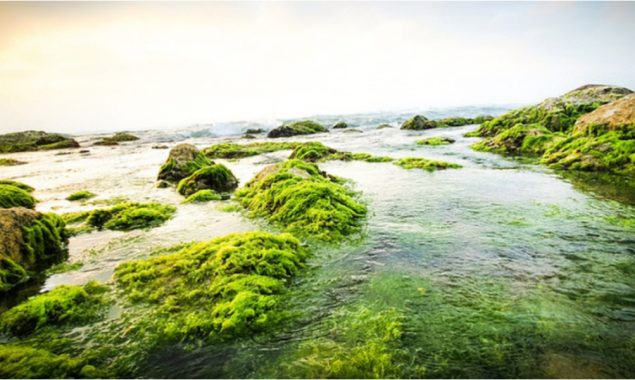Foreign films join race for China’s top movie awards
XIAMEN, Dec. 28 (Xinhua) -- The China Golden Rooster and Hundred Flowers...
JERUSALEM, Dec. 28 (Xinhua) -- Israeli researchers have developed a new method for harvesting electrical current directly from seaweed, the Israel Institute of Technology (Technion) announced on Tuesday.

JERUSALEM, Dec. 28 (Xinhua) — Israeli researchers have developed a new method for harvesting electrical current directly from seaweed, the Israel Institute of Technology (Technion) announced on Tuesday.
Researchers from Technion and the national research institution Israel Oceanographic and Limnological Research (IOLR), both in the northern city of Haifa, created the method, which was published in the principal international journal Biosensors and Bioelectronics.
According to Technion, the method could generate electricity in an environmentally friendly and efficient manner.
In the latest study, the researchers used the Ulva seaweed species, popularly known as sea lettuce, as a new photosynthetic source for the current, producing molecules that transmit the electrons to an electrode.
It produced currents 1,000 times greater than those produced by cyanobacteria, which are on par with those obtained by standard solar cells.
In the dark, the seaweed produced currents that were about half as much as those obtained in the light.
The new method uses no additional chemicals and is deemed as “carbon negative,” because the seaweed does not emit carbon during the day and even absorbs carbon from the atmosphere while growing and releasing oxygen.
The researchers then built a prototype device that collects the electrical current in the Ulva growth vat directly.
The researchers have previously developed technology for obtaining electrical current and hydrogen fuel from cyanobacteria, also known as blue-green algae.
However, the amount of current obtained by cyanobacteria, which is lower than that obtained from solar cell technologies, is reduced in the dark due to the absence of photosynthesis.
Catch all the International News, Breaking News Event and Latest News Updates on The BOL News
Download The BOL News App to get the Daily News Update & Follow us on Google News.